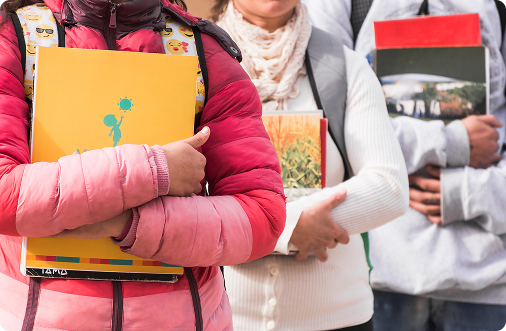The Code To Decipher Media Messages

What Is Media Literacy?
Imagine a world where every piece of information you encounter is like a puzzle waiting to be solved. In today’s media-driven society, where misinformation spreads like wildfire and biases shape our perceptions, navigating through this maze of messages requires special skill. Media literacy is what empowers us with the skills to critically analyze subliminal messages, signs, and symbols conveyed through mass media. Media literacy is increasingly being recognized as an essential competency.
Why Should You Be Media Literate?
In a world where information is abundant and easily accessible through various media channels such as newspapers, radio, television, and the internet, media literacy empowers individuals to navigate this vast landscape of information effectively. By equipping people with the ability to discern and evaluate the content they encounter, media literacy fosters informed decision-making, critical thinking, and active participation in societal discourse.In Pakistan, a country grappling with challenges ranging from misinformation to limited access to education and digital resources, media literacy holds particular significance for addressing these issues and fostering societal development.

Combating Misinformation & Fake News
One of the primary roles of media literacy can play in Pakistan is combating misinformation and fake news, which can spread rapidly through various media channels. In a country where misinformation can have serious consequences, such as inciting violence or shaping public opinion on critical issues, media literacy serves as a crucial defense mechanism. By providing individuals with the skills to critically evaluate information sources and discern credible news from misinformation, media literacy enables citizens to make informed decisions and resist the harmful effects of false information.
Fostering Objectivity
Furthermore, media literacy fosters critical thinking skills among citizens, enabling them to analyze media content objectively and question underlying messages or biases. In a society where media narratives can often be skewed or biased, media literacy empowers individuals to form independent opinions and resist manipulation by biased reporting or propaganda. By encouraging citizens to engage critically with media content, media literacy promotes a culture of skepticism and discernment, which is essential for maintaining a healthy and vibrant democracy.
Promoting Civic Engagement
Moreover, media literacy plays a crucial role in promoting civic engagement and active citizenship. By enhancing their understanding of media processes and their influence on society, media literacy enables citizens to participate more effectively in democratic processes, engage with political issues, and hold government officials and media organizations accountable. In a country like Pakistan, where civic engagement is essential for driving social and political change, media literacy can serve as a catalyst for greater citizen participation and empowerment.Additionally, our project, <a “href=”https://www.mediatiz.org/mediamind/”>MediaMind, empowers individuals to critically analyze and navigate the complex media landscape, fostering informed decision-making and contributing to a more knowledgeable and active society.
Empowering Communities
Media literacy also empowers marginalized communities by providing them with the tools to critically analyze media representations and challenge stereotypes or discriminatory narratives. In a society where certain groups may be underrepresented or misrepresented in the media, media literacy can help amplify diverse voices and perspectives, fostering greater inclusivity and social justice. By enabling marginalized communities to engage critically with media content, media literacy empowers them to assert their rights and demand greater representation and recognition.
Supporting Educational Goals
Media literacy also supports educational goals by complementing traditional curriculum subjects and enhancing critical thinking, communication, and information literacy skills among students. By integrating media literacy education into formal education curricula at all levels, from primary schools to higher education institutions, Pakistan can ensure that future generations are equipped with the skills they need to navigate the media landscape responsibly and effectively.
Why Should You Be Media Literate?

In an increasingly digitalized world, media literacy is closely intertwined with digital literacy. By teaching individuals how to navigate digital platforms, evaluate online content, and protect their online privacy and security, media literacy contributes to the development of a digitally competent population in Pakistan. In a country where access to digital resources and information is uneven, media literacy can help bridge the digital divide and ensure that all citizens have access to the benefits of the digital age.
Despite its importance, media literacy faces several challenges in Pakistan, including limited access to education, high illiteracy rate, language barriers, the digital divide, cultural and religious sensitivities, etc. Addressing these challenges requires a comprehensive approach involving various stakeholders and strategies. Investment in education, digital infrastructure development, capacity building, community engagement, cultural sensitivity, regulation and accountability, partnerships and collaboration, public awareness campaigns, and integration into the curriculum are all essential steps in promoting media literacy in Pakistan.
Media literacy is vital for informed citizenship and decision-making in Pakistan. By integrating it into the curriculum, young minds can gain essential skills to navigate media responsibly. Moreover, media literacy can help foster lifelong learning, ensuring individuals can adapt to evolving media trends and contribute to a cohesive, democratic society.


